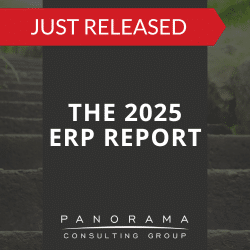Our increasing reliance on digital technology has also led to a rise in legal disputes involving its development, implementation, and usage. In these intricate cases, the expertise of a software expert witness becomes invaluable.
What is a Software Expert Witness?
A software expert witness is a highly qualified professional who possesses in-depth knowledge of software development methodologies, technologies, and industry standards. They are recognized as experts in their field, having accumulated extensive experience through hands-on involvement in software projects and a deep understanding of the legal implications of software-related issues.
Software expert witnesses play a crucial role in legal proceedings involving software-related disputes.
Contemplating litigation?
We have multiple software expert witnesses available for provision of reports, depositions, and testimonies.
Responsibilities of a Software Expert Witness
- Reviewing and analyzing technical documentation and source code
- Identifying and evaluating the root causes of ERP software failures or defects
- Determining whether software infringements have occurred
- Preparing expert reports and opinions for legal counsel
- Providing expert testimony in court or arbitration proceedings
When to Engage a Software Expert Witness
- Patent infringement lawsuits
- Copyright infringement lawsuits
- Trade secret misappropriation lawsuits
- Breach of contract disputes
- Software defects or failures causing damages
- Software licensing agreements
The Importance of Software Expert Witnesses
Software expert witnesses bring a wealth of knowledge and experience to the table, offering several benefits in legal proceedings:
• Technical Expertise: They can effectively explain complex technical concepts to judges, juries, and other legal professionals who may not have a strong background in software, such as ERP, CRM, SCM, and other types of enterprise systems.
• Objectivity and Impartiality: They provide unbiased and objective opinions based on their expertise and analysis of the evidence, helping the court reach a fair and informed decision.
• Credibility and Persuasiveness: Their expertise and experience lend credibility to their testimony, making their opinions more persuasive and impactful.
• Case Resolution: They can help expedite case resolution by providing valuable insights and identifying potential settlement opportunities.
What Qualifies a Software Expert Witness?
To be considered a credible software expert witness, individuals must possess a combination of technical expertise and legal understanding. They typically hold advanced degrees in computer science, software engineering, or related fields, and have a proven track record of success in managing and executing implementations for many types of ERP systems. Additionally, they are familiar with the legal framework governing software-related disputes, including intellectual property law, contract law, and tort law.
Finding the Right Software Expert Witness
When searching for the right expert for your case, it’s important to consider several factors:
• Relevant Expertise: Ensure the expert has in-depth knowledge and experience in the specific type of software relevant to your case.
• Credentials and Reputation: Verify the expert’s credentials, such as academic degrees, professional certifications, and industry recognition.
• Objectivity and Independence: Confirm the expert is free from any biases or conflicts of interest that could affect their objectivity.
• Communication Skills: Assess the expert’s ability to communicate complex technical information in a clear, concise, and understandable manner.
• Cost-Effectiveness: Evaluate the expert’s fees and ensure they align with the budget and scope of your case.
Lessons Learned from Our ERP Expert Witness Practice
Our ERP consulting firm has had the unique opportunity to analyze some of the most high-profile ERP failures in the industry. This experience has provided insights into the common causes of ERP failure and the strategies organizations can use to avoid these pitfalls.
Here are some ERP failure lessons learned according to Bill Baumann, Director of Software Expert Witness:
1. Unrealistic Expectations and Mismanaged Sales Cycle
The seeds of ERP failure are often sown during the sales cycle. Misaligned expectations, poorly defined project scope, and unrealistic timelines set the stage for disappointment.
Organizations should carefully evaluate their needs, conduct thorough due diligence, and engage in transparent communication with vendors to establish realistic expectations from the outset.
2. Organizational Change Management Failures
Organizational change management (OCM) is often overlooked or inadequately addressed during ERP implementations. OCM is the process of preparing your workforce for the cultural and organizational changes that accompany a new ERP system. When OCM is neglected, user resistance and poor adoption hinder the success of the implementation.
3. Executive Abdication and Lack of Oversight
ERP implementations are complex undertakings that require strong executive leadership and oversight. When executives abdicate their responsibilities or fail to provide adequate guidance, projects are more likely to falter.
Executives should actively participate in the decision-making process, ensure alignment with organizational goals, and provide the necessary resources and support to ensure project success.
Other Common Themes in ERP Failures
In addition to the aforementioned pitfalls, our software failure experts have found other recurring themes:
• Lack of Clear Business Objectives: Organizations often embark on ERP implementations without clearly defined business objectives. This lack of clarity leads to confusion, scope creep, and ultimately, failure.
• Inadequate Project Planning and Risk Management: ERP projects are complex and often involve significant risks. Without proper planning and risk management, these risks can materialize and derail the project.
• Poor Communication and Stakeholder Engagement: Effective communication and stakeholder engagement are crucial for ERP success. Organizations should establish clear communication channels, keep stakeholders informed, and address concerns promptly.
Protecting Your Rights in Technology-Driven Litigation
What is a software expert witness? Software expert witnesses play a critical role in navigating the complexities of software-related legal disputes. Their expertise, objectivity, and persuasive abilities can significantly impact the outcome of a case.
By carefully selecting a qualified and experienced expert, attorneys and their clients can strengthen their legal arguments, and increase their chances of winning their case. Contact a computer software expert witness below to learn more.













